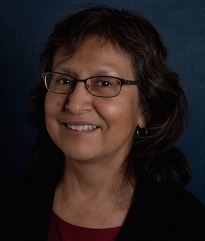2018 School Spending Survey Report
Voices from the Joint Conference of Librarians of Color
 In honor of the Joint Conference of Librarians of Color 2012 (JCLC), which began yesterday in Kansas City, MO, LJ caught up with Co-Chairs and the Program Chair of the Conference to hear their views on some of the challenges facing librarians of color today. Haipeng Li, University Librarian at the Hong Kong Baptist University, and Janice Rice, Outreach Coordinator for the College Library at the University of Wisconsin-Madison, chair the conference, while Alanna Aiko Moore, Interim Assistant Department Head for Information Services and User Education; Ethnic Studies and Gender Studies Librarian, Social Science and Humanities Library, UC San Diego Library, serves JCLC Program Chair. What are the most pressing issues facing librarians of color today? Haipeng Li: The most pressing issue we face today, more than ever, is how we proactively address the needs of our communities, particularly diverse communities we serve and work with. As our societies are changing rapidly, so are our communities and our profession.
In honor of the Joint Conference of Librarians of Color 2012 (JCLC), which began yesterday in Kansas City, MO, LJ caught up with Co-Chairs and the Program Chair of the Conference to hear their views on some of the challenges facing librarians of color today. Haipeng Li, University Librarian at the Hong Kong Baptist University, and Janice Rice, Outreach Coordinator for the College Library at the University of Wisconsin-Madison, chair the conference, while Alanna Aiko Moore, Interim Assistant Department Head for Information Services and User Education; Ethnic Studies and Gender Studies Librarian, Social Science and Humanities Library, UC San Diego Library, serves JCLC Program Chair. What are the most pressing issues facing librarians of color today? Haipeng Li: The most pressing issue we face today, more than ever, is how we proactively address the needs of our communities, particularly diverse communities we serve and work with. As our societies are changing rapidly, so are our communities and our profession. 
Haipeng Li
Janice Rice: It is important that new and seasoned librarians are a vital part of their library staff and their respective communities. With the support of administrators and other library staff, new programs and services have a greater likelihood to succeed and continually evolve to reflect the changing needs of the community. It's a team effort, and the librarian of color needs to be connected, included, and provided with opportunities for advancement. What more should be done to recruit people of color into librarianship, and librarians of color into leadership positions? HL: We need to focus our attention on particular communities and cultivate leaders within these communities. Strategic plans should be created with specific actions to achieve them. Current successful programs include the ALA Spectrum Scholarship Program, ARL Leadership, and Development Program.
Janice Rice
JR: We need to strengthen the Office for Diversity at ALA and the Spectrum Scholars program, and the ARL Diversity Programs. Along with that, we need administrators at large public libraries, universities, school systems, and special libraries to renew their commitment to recruiting and retaining librarians and library staff who reflect the demographic shift in their communities. More than one program item at the JCLC conference focuses on microaggressions; is this new research and if so, how does it change our understanding of how librarians should relate to one another or to their customers? Alanna Aiko Moore: The term microaggression was coined by psychologists in the 1970s, but psychologist Derald Wing Sue has expanded upon the theory in the past five to ten years. To paraphrase Sue, microaggressions are subtle, everyday insults, demeaning messages, and indignities which are sent to the targeted group by people who are often unaware of the hidden messages that they are sending. What makes microaggressions so dangerous is not only the impact of those subtle messages, but the uncertainty of not knowing if the oppression that the victim experienced really happened.
Alanna Aiko Moore
It is vitally important that we discuss microaggressions in our profession. As a profession with few people of color, it is important to have trainings that prepare people with skills to acknowledge, name, and interrupt this behavior, so that we can work internally to stop microaggressions and build strong organizations. As a public service profession, it is imperative that we recognize and interrupt microaggressions when they take place in interactions with our patrons. As librarians, we serve incredibly diverse communities, and microaggressions can create unseen barriers to library use. HL: This concept helps us identify new and more subtle issues of diversity which need to be addressed by our profession. A better environment needs to be created that demands respect for differences. JR: This is a new area of research but not a new experience for people of color. These issues have been raised at numerous cultural sensitivity trainings and have sometimes been the source of discomfort. With social networking tools and new communication patterns, these issues have gained visibility and provide a forum for discussion and reflection. By its nature, the tools are less intrusive and actions are self-directed. It may be more effective in creating change in the library environment, if we will take the time to read, post, or take action. At the diversity roundtable at ALA annual, participants raised the issue of reaching out to communities with a well-earned distrust of libraries and/or any government functionaries (the deaf, recent immigrants from repressive regimes, undocumented immigrants). What can libraries do to make members of these populations feel safe and welcome at the library? HL: Programs and events targeted at these populations need to be created. Libraries have been trying, but these efforts need to continue and be sustained. Libraries need to be welcoming places for all people. That's why JCLC is a conference for all. JR: For those who distrust libraries and institutions, it is important that the library possess desirable material that is culturally appealing to the respective community members. Reaching out and meeting them on their turf will be one step toward gaining their trust. Cultural programming, book talks, and author programs that relate to their cultural and linguistic interests may eventually attract them into the library. These are not new ideas. The library is not alone, and other civic community leaders must be committed to inclusion, if libraries are to create a welcoming environment. How do librarians balance our commitment to freedom of speech with our need to discourage the creation of a hostile environment that could make patrons of color feel unsafe and unwelcome at the library? JR: It's a continual balancing act as librarians choose library material and provide programming and meeting space for groups that may offend others in the community. The Library Bill of Rights and the development of library policies provide the framework from which library administrators and staff can work. Our library boards as well as our staff need to be reflective of our communities. When we know our communities and value their humanity, we provide better services and a welcoming environment for all. How do you feel about the creation of Black Storytimes? HL: I think this is an excellent example of how communities work together to create unique programs to enrich people's lives, those of whom often neglected by the mainstream societies. Libraries should take the lead in building allies to create such programs which have high impact on our communities. JR: Black Storytimes is an excellent idea. Anytime a library brings literacy, enlightenment, and cultural value to communities of color it has been a successful day. We need to build upon the Family Literacy Focus that was created during Camila Alire's ALA Presidency. AAM: Black storytimes is a fantastic concept that should be applauded and replicated. People of color often experience barriers to using the library, and any programs that can speak directly to them and encourage them to use the library should be supported. Since storytimes support literacy, and statistics show large gaps in literacy rates between black youth and white youth, the black storytimes programs are helping to close that gap and encourage black families to use the library. Libraries should celebrate all users, from a variety of backgrounds and heritages, and by offering programs that reflect specific experiences and by exposing children to African and African American culture, they are connecting with black children and their families, and the library a more welcoming place.RELATED
RECOMMENDED
TECHNOLOGY
ALREADY A SUBSCRIBER? LOG IN
We are currently offering this content for free. Sign up now to activate your personal profile, where you can save articles for future viewing









Add Comment :-
Comment Policy:
Comment should not be empty !!!
Florante Peter Ibanez
You should be here at JCLC for the fellowship and schooling - Truly FABULOUS Experience!!!!!Posted : Sep 22, 2012 04:23
Jacqueline Ayala
Say it again and again! These esteemed colleagues are speaking truth first as they EXPERIENCE it and next as it has been shared with them by others. At JCLC we are gathering at the waters and embracing our communities ..which at this time find themselves in need of positive reinforcement and less scapegoating.Posted : Sep 21, 2012 10:20
Evelyn N. Alfred
Great interview.Posted : Sep 20, 2012 09:08